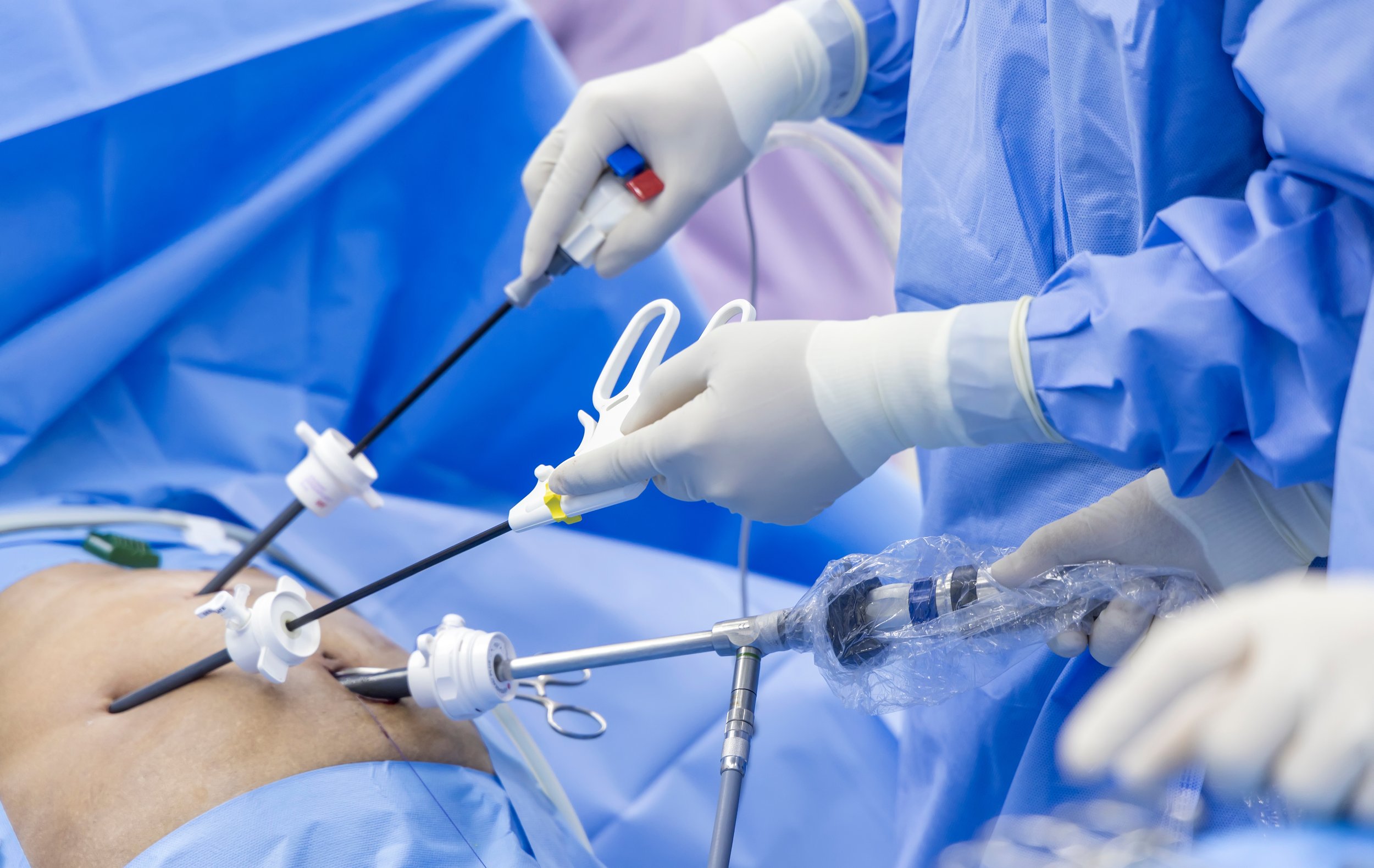
Laparoscopy For Fertility
What is a laparoscopy?
A laparoscopy is a surgical procedure performed through small holes on your belly. This is also known as keyhole surgery.
You will be asleep (under general anaesthetic) during the surgery. Gas (carbon dioxide) is used to expand your belly. A long thin camera and other instruments are passed through small holes on your belly, allowing me to see all your organs and perform the surgery.
Why get a laparoscopy for fertility?
The aim of the surgery is to find and fix any problems that are preventing you from falling pregnant. This includes:
Checking for any abnormalities of the uterus, ovaries, or fallopian tubes.
Passing fluid through your fallopian tubes to test for any blockage.
Cutting out or burning any endometriosis spots and nodules.
Removing scar tissue (adhesions) from your pelvic organs
The benefits of laparoscopy over traditional open surgery (laparotomy) include:
Better vision to identify any of the problems listed above.
Less pain, shorter stay in hospital, and faster recovery after surgery.
Smaller scars.
Are there any complication risks?
Internal organ damage (bladder, bowel, ureters, ovaries, tubes, uterus).
Blood clots (legs or lungs).
Internal scar tissue (adhesions).
Hernias
Need to convert to open surgery (laparotomy).
Short-term inability to pass urine.
There are also risks associated with surgery in general. These include:
Reactions to the anaesthetic. You can discuss any concerns with the anaesthetist.
Severe pain.
Bleeding (haemorrhage) during or after the operation.
Infection.
There may also be rare risks that are not anticipated and therefore not listed here, or risks that are specific to you. Please let me know if you have any specific concerns to consider.
Instructions prior to your Surgery:
2 days prior:
o Light diet of easily digested foods
o 1 sachet of Movicol (stool softener).
Fasting times: my anaesthetist will advise you when to stop eating and drinking.
Please organise for someone to pick you up and drive you home.
Please contact the hospital for further instructions regarding check-in and surgery times.
Blood tests:
What to expect following surgery
At home
Take your medication exactly as instructed.
Avoid constipation - drink plenty of water, eat high fibre foods (fruits, vegetables, and
whole grains), use a laxative if prescribed, keep active and mobile.
Your stitches will dissolve, and any dressings can be removed 4 days after surgery.
Shower as usual - wash your wounds with mild soap and water, pat them dry afterwards.
Don't put anything in your vagina until after your follow-up appointment. This includes
tampons, douches, and sex or sex toys.
Avoid heavy lifting until your follow-up appointment.
Activity
• Driving - please check with your car insurance company.
- You cannot drive for at least 24 hours after a general anaesthetic.
- You are medically cleared to drive when you are pain free, moving comfortably, and not requiring any prescription pain medication such as codeine or oxycodone.
Slowly increase your activity over the coming days or weeks, starting with gentle walks.
Post operation concerns
Please contact my rooms or the hospital if you experience any of the following:
Fever above 38°C or chills, nausea, or vomiting
Vaginal bleeding that completely fills a sanitary pad in under 2 hours
A smelly vaginal discharge.
Pain when you wee, or difficulty urinating.
Severe pain or swelling in your belly, especially after taking pain medicines.
Redness, swelling, or pus at your incision sites.
Difficulty breathing, chest pain, or calf/leg pain.
Pain - The incisions on your abdomen may be sore. You may also have pain in your upper back or shoulders. This is from the gas used to distend your abdomen and allow me to see inside your pelvis. This pain usually goes away in a day or two.
Recovery time - usually 1 to 3 weeks, but this can vary from woman to woman.
Tiredness – You may tire more quickly over the next month as your body is recovering.
Bleeding - Vaginal discharge and light bleeding or spotting may occur for a few weeks.

